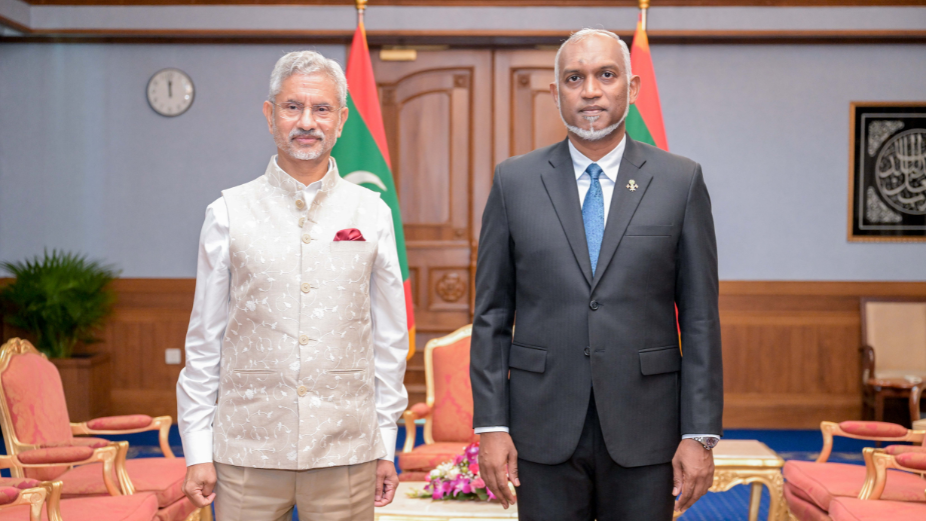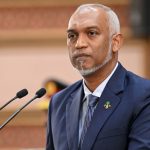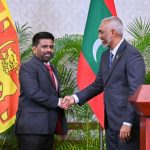
The Maldives and India share a complex and multifaceted relationship, one that has evolved significantly over the years, influenced by historical ties, geopolitical shifts, and economic interdependence. In recent times, the relationship has been tested by political changes in the Maldives and growing regional competition. However, the recent visit of India’s Minister of External Affairs, Dr. S. Jaishankar, to the Maldives marks an important step towards rebuilding and strengthening this critical partnership.
A Historical Partnership
India has long been a key ally of the Maldives, providing crucial support in times of need. The relationship between the two nations is deeply rooted in shared history and cultural ties. India’s swift response to the 1988 coup attempt in the Maldives, its assistance during the 2004 tsunami, and its support during the 2014 Malé water crisis are just a few examples of how India has stood by the Maldives in times of crisis.
Economically, India has been a significant partner in the Maldives’ development. Indian tourists were among the largest groups visiting the Maldives as recent as 2023, contributing significantly to its economy, especially during the low season. Additionally, India has been involved in numerous infrastructure projects in the Maldives, including the construction of roads, housing, and health facilities, often through grants and credit facilities.
Recent Strains in Bilateral Relations
Despite the historical strength of this relationship, recent years have seen some tension. The election of President Dr Mohamed Muizzu brought a noticeable shift in the Maldives’ foreign policy, with a renewed focus on national sovereignty and a recalibration of its relationships with major international partners. This shift has occasionally led to friction with India, particularly regarding the presence of Indian military personnel in the Maldives and the cancellation of some bilateral agreements.
President Muizzu’s administration has also sought to diversify its foreign relations, looking towards other global powers, which some analysts interpret as a move towards balancing relations between India and China. The initial exclusion of India from President Muizzu’s early foreign visits, departing from tradition, further fuelled speculation about a possible shift in the Maldives’ foreign policy direction.
Dr. Jaishankar’s Visit: A Step Towards Reconciliation
In this context, the recent visit of Dr. S. Jaishankar to the Maldives is particularly noteworthy. The visit, which included high-level meetings with President Muizzu and other key ministers, was not just a routine diplomatic engagement but a crucial effort to mend and possibly redefine the partnership between the two nations.
During the visit, Dr. Jaishankar and Maldivian officials inaugurated several projects funded by Indian grant assistance, illustrating India’s continued commitment to the Maldives’ development. These projects, which include infrastructure development and capacity-building initiatives, highlight the areas where India and the Maldives have traditionally collaborated closely.
The discussions also focused on broader economic cooperation, with both sides reaffirming their commitment to advancing current projects and exploring new areas of collaboration. The replacement of Indian military personnel with civilians at aviation platforms in the Maldives was another key issue addressed during the visit, reflecting a mutual desire to navigate sensitive issues with diplomacy and respect for each other’s sovereignty.
The Future of Maldives-India Relations
As the Maldives and India navigate this delicate period in their bilateral relationship, the outcomes of Dr. Jaishankar’s visit could have far-reaching implications. The visit represents an opportunity for both nations to address recent strains, reaffirm mutual commitments, and set the stage for a renewed partnership that respects the political realities of both countries while continuing to foster cooperation in key areas such as economic development, infrastructure, and regional security.
For the Maldives, maintaining a strong relationship with India is crucial, given its strategic location in the Indian Ocean and the growing geopolitical competition in the region. India, on the other hand, views the Maldives as a key partner in its efforts to ensure regional stability and counterbalance other influences in the Indian Ocean.
The future of Maldives-India relations will likely depend on how well both nations can manage these geopolitical complexities while continuing to build on their shared history and mutual interests. As both countries work towards strengthening their ties, the ongoing dialogue and cooperation signal a cautious optimism for the future, with the potential to redefine the diplomatic contours of the Indian Ocean region.












